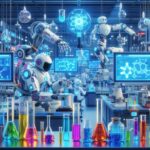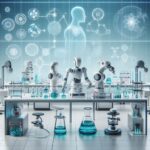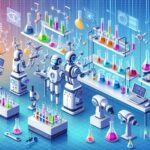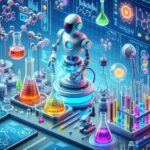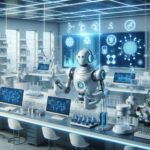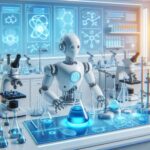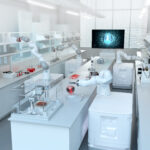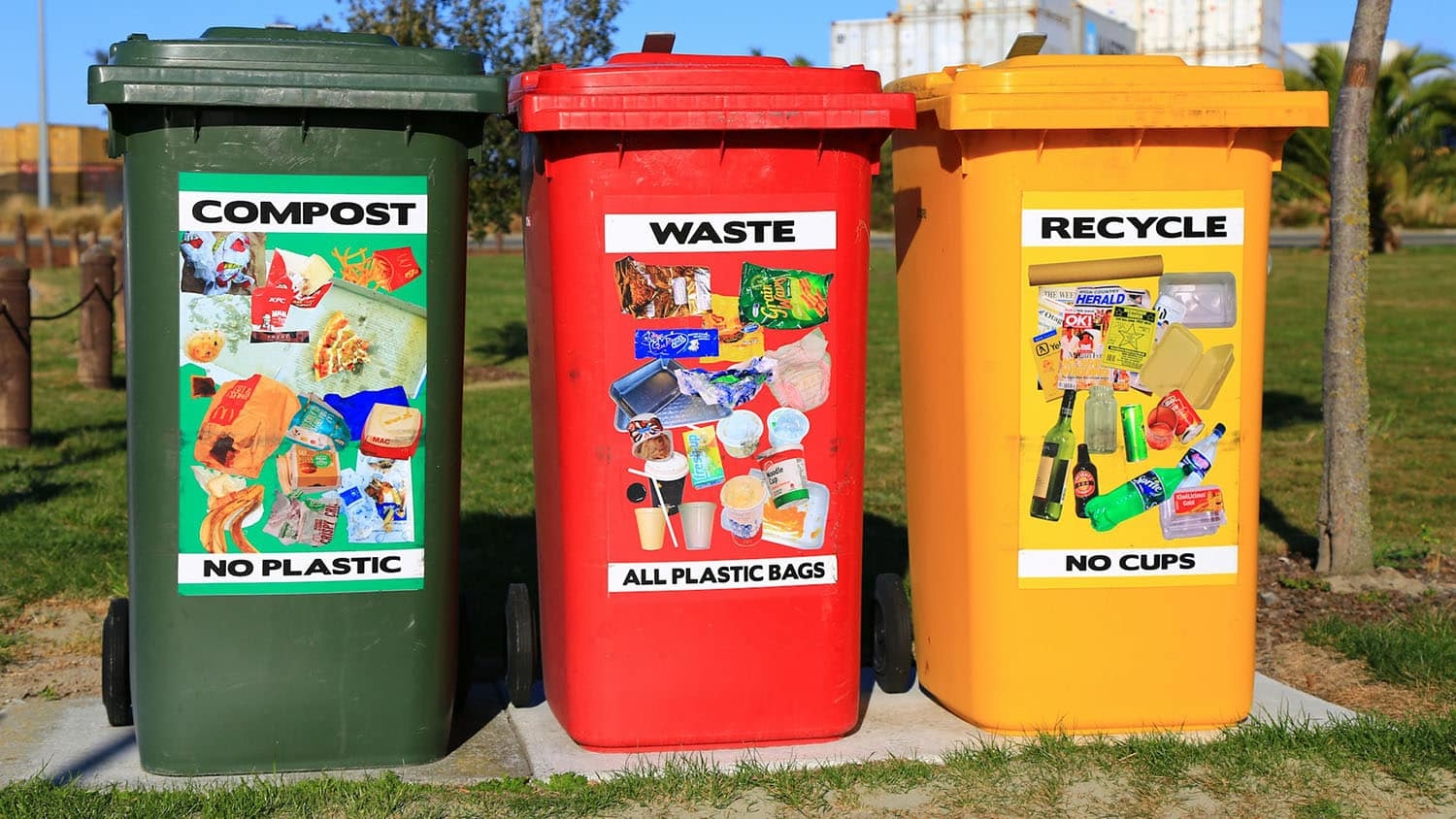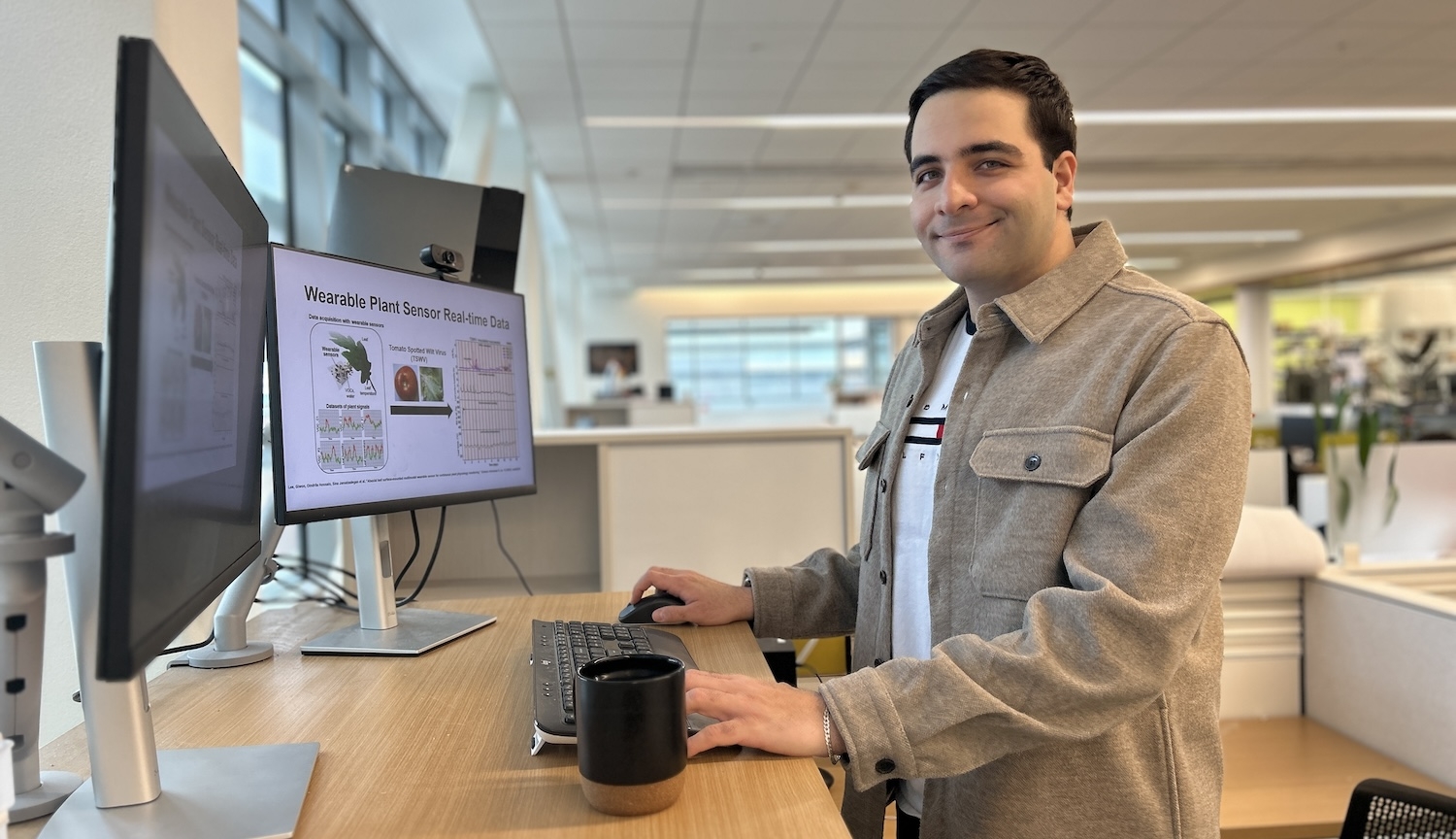When it comes to navigating the future of scientific discovery, NC States sits in the driver’s seat.
On January 11-12, 2024, the Integrative Sciences Initiative (ISI) will host the FUTURE Labs Workshop, designed to discuss the progress and future of self-driving labs (SDLs).
SDLs integrate artificial intelligence (AI), lab automation and robotics to revolutionize experimental sciences and scientific research. NC State’s mission in this area is to establish Universal SDL Testbeds for physical and life sciences as the foundation of research and educational infrastructure for the future.
“Addressing global challenges in renewable energy, sustainability and healthcare through technological innovations necessitates a critical examination of our current approaches to experimental sciences. It is imperative to enhance efficiency and speed of materials and molecular discovery in order to expedite impactful progress,” said Milad Abolhasani, associate professor, ALCOA Scholar and University Faculty Scholar in the Department of Chemical and Biomolecular Engineering and workshop chair. “At the FUTURE Labs Workshop, we will discuss how autonomous labs can reduce the time-to-solution by 100x-1000x in chemistry and materials sciences and will chart a roadmap towards the next era of SDLs.”
The Workshop
The workshop will be held at the StateView Hotel on Centennial Campus. On the first day, the first session will cover “Basic Science Questions in SDLs and Full Autonomy” and the second session will cover “Partnership with Industry and SDL Standards.” On the second day of the workshop, the third session will cover “Distributed vs. Centralized SDLs and Workforce Development.”
Event sponsors include the National Science Foundation, Eastman Chemical Company, the College of Engineering, the College of Sciences, the Integrative Sciences Initiative and the Department of Chemical and Biomolecular Engineering.
The plenary speakers are Jeff Carbeck, Vice President of Corporate Innovation at Eastman, and Klavs F. Jensen, Warren K. Lewis Professor of Chemical Engineering and professor of materials science and engineering at the Massachusetts Institute of Technology. Eastman and the Department of Chemical and Biomolecular Engineering have partnered to accelerate the development of specialty chemicals that improve manufactured products and processes by building a self-driving catalysis lab at NC State. For five years, the department and Eastman have collaborated to integrate advancements in AI, catalysis and robotics.
In addition to Abolhasani, the workshop is the result of collaboration between the Scientific Organizing Committee (Keith Brown, Boston University; Tonio Buonassisi, Massachusetts Institute of Technology; Lilo D. Pozzo, University of Washington; Kristofer G. Reyes, University of Buffalo; Francesca Tavazza, National Institute of Standards and Technology), made up of faculty from prestigious research universities and research professionals around the country, and the Local Organizing Committee (Joshua Pierce and Martin Seifrid, NC State).
Integrated Impact
Departments and units across STEM disciplines at NC State stand to benefit from the development and work of SDLs, with ISI, the College of Engineering and the College of Sciences leading the way.
“Our College of Engineering is doing important research in the area of SDLs working collaboratively across engineering disciplines,” said Jim Pfaendtner, Louis Martin-Vega Dean of Engineering at NC State. “I’m excited that NC State is hosting this workshop, which will afford us an opportunity to highlight our work in autonomous labs and other areas of applied AI, and a chance to learn from other important figures in the field.”
Why do so many stand to reap the rewards of SDL-related research? SDLs increase access to scientific discovery, making game-changing discoveries a reality in a short timeframe for more researchers. The FUTURE Labs workshop will discuss the path forward toward broadening access to standardized and modularized SDLs and national centers of excellence that will accelerate research and industrial development across multiple domains.
“We’re excited to host the scientific community at NC State, one of the nation’s top R1 universities, to chart the path forward for SDLs,” said Joshua Pierce, executive director of the ISI. “The ISI focuses on accelerating the molecular sciences at NC State, and we seek to broaden our impact throughout higher education and industry. SDLs are one aspect of a broader vision for accelerating the discovery of molecular solutions within ISI and we are thrilled to host this workshop.”
What does that look like in practice? Think about researchers being able to use cutting-edge autonomous labs and open-access databases in order to expand their knowledge and discoveries. Consider participants in industry being able to take hold of opportunities for growth and to fast-track finding tangible solutions for today’s most pressing challenges.
“In a world where materials and molecular discovery have never been more urgent, the FUTURE Labs Workshop at NC State will facilitate discussions around democratizing access to autonomous labs, fostering collaboration between academia and industry,” said Abolhasani. “Join us, and together, let’s redefine the future of scientific exploration!”
AI-Inspired Images of Self-Driving Labs
This post was originally published in Provost's Office News.

